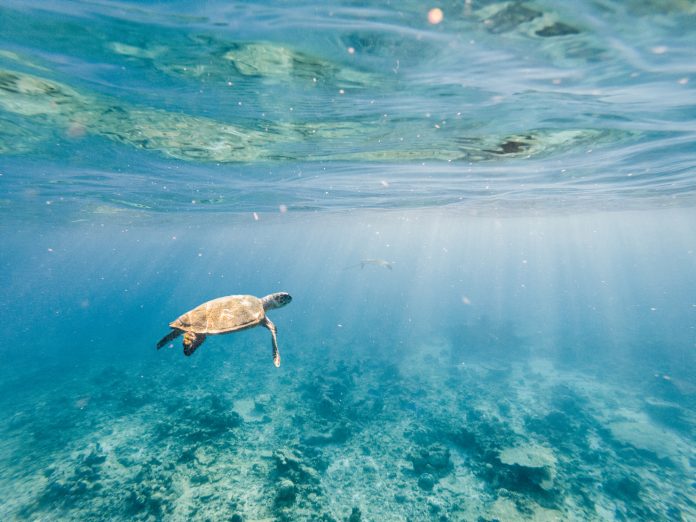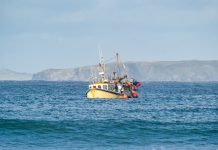The EU policy on the Green Deal, climate neutrality, oceans and fisheries, plus the circular economy are examined in this in-depth environment analysis
Let’s first take a closer look at how the Commission implements the European Green Deal and its ambition to become the world’s first climate-neutral continent by 2050 under the leadership of Maroš Šefčovič, Executive Vice-President (2023-2024), in charge of European Green Deal, Interinstitutional Relations and Foresight. (1)
Climate change impacts and environmental degradation threaten the very existence of Europe and the rest of the world. The European Green Deal aims to tackle these challenges by transforming the European Union (EU) into a resource-efficient, modern, competitive economy. This policy aims to achieve zero greenhouse gas emissions before 2050, with “economic growth decoupled from resource use” and “no person and no place left behind.”
The European Green Deal is also the exit strategy from COVID-19. A third of NextGenerationEU Recovery Plan investments (€1.8 trillion) and the EU’s seven-year budget support the European Green Deal.
The European Commission set ambitious targets to lower net greenhouse gas emissions by no less than 55% before 2030 compared to 1990 levels as part of a set of proposals to modernise the EU policy on climate, energy, transport and taxation. (2)
More on the Green Deal
Climate change, biodiversity loss, and pollution all add up to an existential threat to the human race, Vice-President Šefčovič noted in late January 2024. So, we need to use all the levers at our disposal to accelerate the green transformation that is our only solution, he said. We are told Space is a critical component of the European Green Deal, a point that Executive Vice-President Šefčovič develops.
“For example, the knowledge and services derived from Earth observation are crucial in supplying critical information to monitor our climate and environment, as we aim to make Europe the first climate-neutral continent by 2050. Indeed, the EU Space Programme is an excellent all-round tool, providing detailed and near-real time knowledge about our planet.”
In particular, the Earth observation component (Copernicus) is essential for environmental monitoring and plays a role in many (if not all) aspects of the Green Deal, Vice-President Šefčovič noted.
“Copernicus provides unique climate information both for mitigation and adaptation. It aids us in monitoring and improving air quality, and managing our soils, forests and water more sustainably. It helps us supply clean energy and boost our energy security, delivering state-of-the-art information about solar radiation, winds and waves,” Vice-President Šefčovič continued. (3)
Remember that the Green Deal is at the heart of the EU’s jobs and growth agenda. Then, think about the provisional political agreement on the Net-Zero Industry Act (NZIA) in February 2024, which will be an essential tool to drive growth and employment in net-zero technologies, building a climate-positive society, as the EU intends to achieve climate neutrality by 2050.
“The EU needs those technologies and the whole world needs those technologies: today the EU underlines its commitment to invest in manufacturing of these technologies so that they are available for the EU and for the world,” Executive Vice-President Šefčovič said. (4)
The road to climate neutrality in 2050
In February 2024, the Commission published an in-depth impact assessment on possible options to achieve the agreed objective of a climate-neutral EU by 2050. From this impact assessment comes the Commission’s recommendation to reduce net greenhouse gas emissions by 90% before 2040, compared to 1990 levels, as we mentioned earlier.
The communication outlines several enabling policy conditions essential to achieve the 90% target. They include a full implementation of the 2030 framework, competitiveness of the European industry, achieving a fair transition that leaves nobody behind, a level playing field with global partners, and strategic dialogue on the framework post-2030, including industry and agriculture.
Following the European elections, a legislative proposal from the next Commission is subject to approval by the European Parliament and the Member States as required by EU Climate Law. Europe has already decided to invest in a sustainable economy, an innovative and competitive at a global level, with a focus on agile clean industries, Vice-President Šefčovič noted.
We have just experienced the warmest year on record, said Wopke Hoekstra, Commissioner for Climate Action. There’s no question that climate action is necessary, and we must act now. “Tackling the climate crisis is a marathon, not a sprint. We need to make sure everyone crosses the finish line, and nobody is left behind,” Commissioner Hoekstra added. (5)
The Commission welcomed the European Parliament’s and Council’s provisional agreement on 20th February on the first EU-wide voluntary framework for certifying high-quality carbon removals. This certification framework will support cutting-edge carbon capture and carbon farming that align with the EU’s climate, environment and zero-pollution objectives.
“Carbon removals and carbon farming will be an important part of our efforts to reach climate neutrality by 2050. With this new voluntary European certification framework for carbon removals and carbon farming, we will be unlocking new economic opportunities for farmers, foresters, builders and innovators,” Commissioner Hoekstra noted. (6)
On this note, it’s fitting to mention that the European Commission’s Directorate-General for Climate Action (DG CLIMA) (7), headed up by Commissioner Hoekstra with a team including Director-General Kurt Vandenberghe and (at the time of writing) (Acting) Deputy Director-General, Yvon Slingenberg. (8)
EU oceans and fisheries policy
Europe’s environment, oceans and fisheries are at the heart of the Green Deal, so it’s up to the European Commissioner for Environment, Oceans and Fisheries, Virginijus Sinkevičius, to ensure this continues.
His duties also include reviewing the Common Fisheries Policy, covering the social aspect, clean oceans, and climate change. (9)
Commissioner Sinkevičius heads up the leadership of the Directorate-General for Maritime Affairs and Fisheries (DG MARE) with the notable Director-General, Charlina Vitcheva and Deputy Director-General, Sadauskas Kestutis. (10)
In January 2024, Commissioner Sinkevičius made a statement at the EP Plenary regarding the recent environmental disaster caused by plastic pellet loss and its effects on microplastic contamination in coastal and marine habitats. There is a clear need for action, so the Commission proposed a Regulation in October 2023 to prevent plastic pellet losses.
“The primary focus is on prevention, because once pellets enter the environment, they are difficult and costly to capture,” Commissioner Sinkevičius explained.
The EU already has a system in place, hosted by the European Maritime Safety Agency, which facilitates the exchange of data between countries on lost containers and other forms of EU support detailed in the Commissioner’s address.
The Commission proposal, however, calls for economic operators to take the following steps to prevent plastic pellet losses:
- Prevent any spills.
- Contain any spilt pellets to prevent them from leaking into the environment.
- Clean up if any pellets pollute the environment.
“The proposal covers operators that produce, store, or convert plastic pellets into products, and EU and non-EU carriers transporting pellets by road, rail and inland waterways, in the Union,” Commissioner Sinkevičius elaborated.
We need decisive action from all stakeholders, and since maritime waters are international, this also requires close coordination between Member States, said the Commissioner. Therefore, the Commissioner stressed that the proposal on plastic pellet pollution be adopted as soon as possible.
Looking at the big picture, we see that preserving coastal and marine life is in everyone’s best interest; as highlighted by the Commissioner, the blue economy sectors of the EU, such as the fisheries, coastal tourism and aquaculture, all are directly impacted by plastic pellet pollution.
Did you know that reducing the amount of microplastic in our oceans and waters is also one of the objectives of the EU Mission Restore our Ocean and Waters, where innovative solutions are being developed and demonstrated to prevent, remove and monitor microplastics? (11)
EU Circular economy policy
Did you also know the EU seeks to transition to a circular economy, making Europe more competitive and cleaner? Indeed, the circular economy in the EU will reduce pressures on natural resources, generate sustainable growth and employment, and is essential for reaching the EU 2050 climate neutrality goal and stopping biodiversity loss.
It’s imperative to shift away from a “take-make-use- dispose” approach to a “regenerative growth” model to keep resource use within planetary limits. A circular economy preserves the value of goods, materials and resources in the economy as long as possible and minimises waste generation. (12)
Commissioner Sinkevičius leads the Circular Economy Action Plan that promotes using sustainable resources. (9) Also of note is Mr Aurel Ciobanu-Dordea, Director in the Directorate-General for Environment, responsible for Circular Economy. (13)
In early 2020, the EU adopted the ‘Circular Economy Action Plan’ for a greener and more competitive Europe, according to a statement from Commissioner Sinkevičius in mid-February 2024. Since 2020, the pandemic and Russia’s war against Ukraine have posed enormous challenges, but the political will to act on this front has not changed, Sinkevičius said. “The circular economy has enhanced our ability to stay strong and resilient, secure supplies, and strive for sustainability.” Commissioner Sinkevičius added.
Commissioner Sinkevičius then walks us through the evolution of the Circular Economy Action Plan, which initially focused on design, followed by tailor-made rules for key products and the Ecodesign for sustainable products regulation.
“The circular economy agenda has tools that target also consumers, helping them make choices that are better for the environment, because they use less resources, and are better for their wallets, because the goods and services they buy last longer and offer better value in the longer term,” Commissioner Sinkevičius added.
However, issues still need to be solved, including the rapid increase in packaging waste caused by single-use packaging and almost exclusively plastic packaging. “The industry is in favour of harmonised rules for our single market, as quickly as possible, and the Commission of course agrees,” Commissioner Sinkevičius urged. (14)
EU policy protecting the environment
Finally, through all its departments, figureheads and personnel, we wish the European Commission all the best as it seeks to protect the environment of its Member States through its Green Deal, climate neutrality, oceans and fisheries, plus circular economy policies.
References
- https://commissioners.ec.europa.eu/maros-sefcovic_en
- https://commission.europa.eu/strategy-and-policy/priorities-2019-2024/european-green-deal_en
- https://ec.europa.eu/commission/presscorner/detail/en/speech_24_377
- https://ec.europa.eu/commission/presscorner/detail/en/ip_24_680
- https://ec.europa.eu/commission/presscorner/detail/en/IP_24_588
- https://ec.europa.eu/commission/presscorner/detail/en/ip_24_885
- https://commission.europa.eu/about-european-commission/departments-and-executive-agencies/climate-action_en
- https://commission.europa.eu/about-european-commission/departments-and-executive-agencies/climate-action_en#leadership-and-organisation
- https://commissioners.ec.europa.eu/virginijus-sinkevicius_lt
- https://commission.europa.eu/about-european-commission/departments-and-executive-agencies/maritime-affairs-and-fisheries_en
- https://ec.europa.eu/commission/presscorner/detail/en/speech_24_281
- https://environment.ec.europa.eu/topics/circular-economy_en
- https://op.europa.eu/en/web/who-is-who/person/-/person/COM_00000AA3A427
- https://ec.europa.eu/commission/presscorner/detail/en/speech_24_1033











